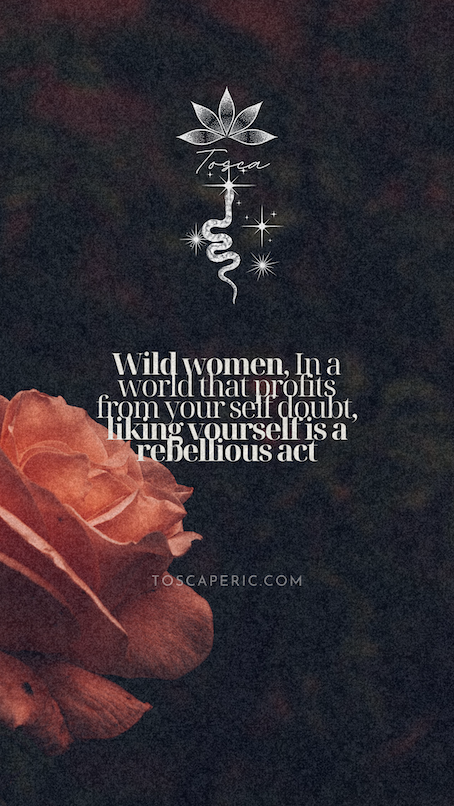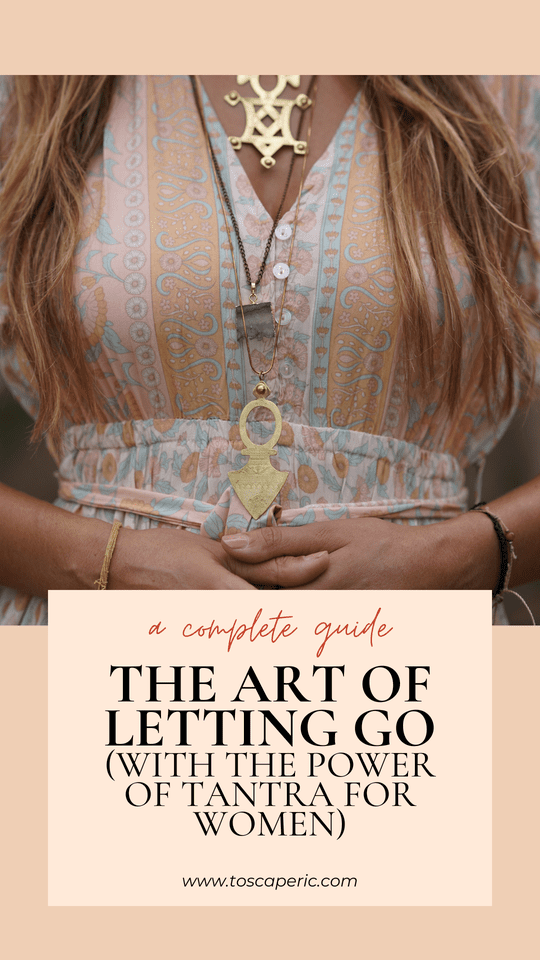I am Tosca
Welcome Goddess!
Family dynamics create two kinds of children: The children who break the cycle and the children who repeat the cycle.
Finding forgiveness for the mother wound is a deeply personal journey that involves understanding, compassion, and self-empowerment. Forgiveness does not necessarily mean excusing harmful behavior or reconciling with your mother—it’s about releasing the emotional weight and pain associated with the wound to find peace. Here are steps to guide you:



1. Validate Your Struggle
It’s essential to recognize that struggling to forgive is completely natural, especially when deep wounds are involved. Forgiveness can feel complicated because it often intertwines with unresolved pain, unmet needs, and lingering feelings of betrayal. Give yourself permission to acknowledge and sit with your emotions, whether they are anger, sadness, disappointment, or even guilt. These feelings are valid and part of your healing process. Forgiveness is not a destination but a journey, and there is no set timeline. Accepting where you are now is a powerful act of self-compassion.
2. Clarify What Forgiveness Means to You
Forgiveness does not mean condoning harmful behavior or pretending everything is fine. It is about freeing yourself from the emotional weight of resentment and pain so you can find peace. For some, forgiveness may involve reconnecting with their mother; for others, it may simply mean letting go of the power her actions or words hold over them. Reflect on what forgiveness looks like to you. Remember, it’s a deeply personal process and does not require reconciliation unless that feels right for you. Defining forgiveness on your terms can ease the pressure and help you approach it with clarity.
Join The Letting Go Club
12 Month Journey of Feminine Embodiment, Self-love, Sisterhood, Letting Go & Musings

Reclaim your energy. Reclaim your power. Embrace your feminine flow. Sign up here.
3. Explore What’s Blocking Forgiveness
Take time to examine why forgiveness feels challenging. Are you waiting for an apology, acknowledgment, or change that may never come? Are you afraid that forgiving means minimizing your pain or making yourself vulnerable again? Sometimes the struggle to forgive stems from an underlying need for justice or fairness. Write down the specific reasons you feel stuck. Understanding these blocks can help you create a plan for addressing them. Remember, forgiveness does not mean relinquishing boundaries or reopening yourself to harm—it’s about your inner peace.
4. See Your Mother in a New Role
One way to ease the struggle with forgiveness is to shift how you view your mother. Instead of seeing her solely as “Mom,” with all the expectations and responsibilities that role entails, try seeing her as a human being with her own limitations, struggles, and wounds. What was her childhood like? What challenges did she face in her life? Recognizing her humanity doesn’t excuse the harm she caused but can help you understand that her actions may have been shaped by factors outside of her control. Seeing your mother through this lens can foster compassion, even if you still hold her accountable for the pain she caused.
5. Be Gentle With Yourself
It’s vital to treat yourself with kindness throughout this process. Forgiveness is not linear, and it’s normal to have moments when resentment or sadness resurfaces. Avoid pressuring yourself to “get over it” or feeling guilty for not forgiving quickly enough. Healing takes time, and every small step you take matters. Give yourself permission to rest when needed, to cry, and to express your emotions without judgment. You are allowed to honor your feelings and prioritize your well-being. Being gentle with yourself also means acknowledging your progress, no matter how small, and celebrating your resilience in choosing to heal.
6. Focus on Self-Compassion
Sometimes, the struggle to forgive others is intertwined with an inability to forgive yourself. You might blame yourself for past mistakes, for not standing up for yourself, or even for still feeling hurt. Take time to practice self-compassion by reminding yourself that you were doing the best you could at the time with the knowledge and tools you had. Healing your inner child—the part of you that still feels the sting of your mother’s actions—can be incredibly empowering. Offer yourself the love and validation you may not have received and affirm that you are worthy of care and understanding.
7. Release the Need for “Perfect Forgiveness”
Forgiveness doesn’t have to happen all at once or be absolute. You can forgive in stages, focusing on specific aspects of the pain at a time. For example, you might start by forgiving her for one action while still processing others. Partial forgiveness is still progress, and it’s okay if some areas of hurt take longer to address. Let go of the expectation that forgiveness must be perfect or immediate. Even small steps toward forgiveness can bring relief and create space for healing.
8. Create Rituals to Support Forgiveness
Sometimes, it’s helpful to symbolize the act of letting go through rituals. Writing a letter to your mother—whether you send it or not—can help you express unresolved feelings. In the letter, you can acknowledge the pain she caused, share how it affected you, and release any burdens you’re ready to let go of. Burning the letter or releasing it in some other way can serve as a symbolic act of closure. Similarly, visualization exercises, such as imagining yourself handing over your pain to a higher power or releasing it into the wind, can be powerful ways to support your journey toward forgiveness.
9. Seek Understanding Without Excusing
Forgiveness is often easier when you can understand the root of someone’s actions. Reflect on what may have shaped your mother’s behavior—her upbringing, traumas, or emotional struggles. This doesn’t mean you excuse the harm she caused, but it can help you separate her intentions from her impact. For example, she may not have intended to hurt you, but her inability to manage her own emotions led to actions that caused pain. Understanding her limitations can shift the focus from blaming her to finding compassion, which can make forgiveness more accessible.
10. Lean on Support Systems
You don’t have to navigate the struggle to forgive alone. Talking to a therapist can provide a safe space to explore your emotions, identify patterns, and develop strategies for healing. Support groups or online communities of people dealing with similar wounds can offer validation and encouragement. Sharing your story and hearing others’ experiences can remind you that you’re not alone and that healing is possible.
11. Give Yourself Time
Forgiveness is not a one-time event; it’s a process that unfolds over time. Some days you may feel closer to peace, while on others, resentment may resurface. Be patient with yourself and trust that healing will come at its own pace. There’s no “right” way to forgive, and it’s okay if the journey takes longer than you expected. Focus on progress, not perfection, and honor the steps you’re taking toward emotional freedom.
Affirmations for Forgiveness
Affirmations can be a powerful tool to support your journey toward forgiveness. They help reframe your thoughts, nurture self-compassion, and guide you in releasing pain and resentment. Below are affirmations to inspire forgiveness, heal the mother wound, and create inner peace:
Affirmations to Release Resentment
- “I release the burden of resentment from my heart.”
- “I let go of the pain of the past to make room for peace in the present.”
- “I free myself by releasing anger and bitterness.”
- “I choose to focus on my healing, not the hurt.”
- “The past no longer has power over me; I am free.”
Affirmations for Self-Compassion
- “I offer myself the love and understanding I needed as a child.”
- “It’s okay to feel hurt and still choose healing.”
- “I forgive myself for holding onto pain; I was protecting my heart.”
- “I am patient and gentle with myself as I heal.”
- “My emotions are valid, and I give myself permission to feel them fully.”
Affirmations to Reframe Forgiveness
- “Forgiveness is for my peace, not for approval or reconciliation.”
- “I can forgive while maintaining healthy boundaries.”
- “Forgiveness doesn’t mean forgetting—it means releasing the hold of the past.”
- “I choose to forgive so I can move forward without anger weighing me down.”
- “I am healing at my own pace, and forgiveness will come in its time.”
Affirmations to See Your Mother with Compassion
- “I recognize my mother’s humanity and her own struggles.”
- “I accept that my mother did the best she could with the tools she had.”
- “I can hold my mother accountable while still finding compassion for her.”
- “Understanding my mother’s pain helps me release my own.”
- “I choose to see my mother as a person, not just a role.”
Affirmations for Emotional Freedom
- “Forgiveness brings me the freedom to live fully in the present.”
- “I am no longer tied to the pain of the past.”
- “I am creating a life of peace, love, and joy, free from resentment.”
- “I am in control of my emotions and my healing journey.”
- “Each day, I take one step closer to emotional freedom.”
Affirmations to Embrace Healing
- “I trust myself to heal at my own pace.”
- “Healing is not linear, and I am growing stronger every day.”
- “I forgive myself for any mistakes and honor my journey.”
- “Every act of forgiveness brings me closer to peace.”
- “I am worthy of love, healing, and freedom from the past.”
These affirmations can be used daily or when you’re feeling stuck in your forgiveness journey. Repeat them aloud, write them in a journal, or meditate on them. Over time, they can help shift your mindset, nurture your emotional well-being, and guide you toward the peace you deserve. ❤️
Family dynamics often shape two types of children: those who unconsciously repeat the cycles of pain, dysfunction, and unresolved trauma, and those who courageously choose to break free and heal.
Repeating the cycle often stems from a lack of awareness or the belief that things cannot change, while breaking the cycle requires bravery, introspection, and intentional effort. You have the power to decide which path you’ll take.
Do you want to address your mother wound, transform your pain into empowerment, and step into your most authentic self? Join my course or sign up for Goddess Medicine today and start your journey toward healing and freedom. Your future self is waiting.
Keep reading about the Mother Wound:
How The Mother Wounds Affect Us
Finding Forgiveness for the Mother Wound
Power Dynamics of the Mother Wound






